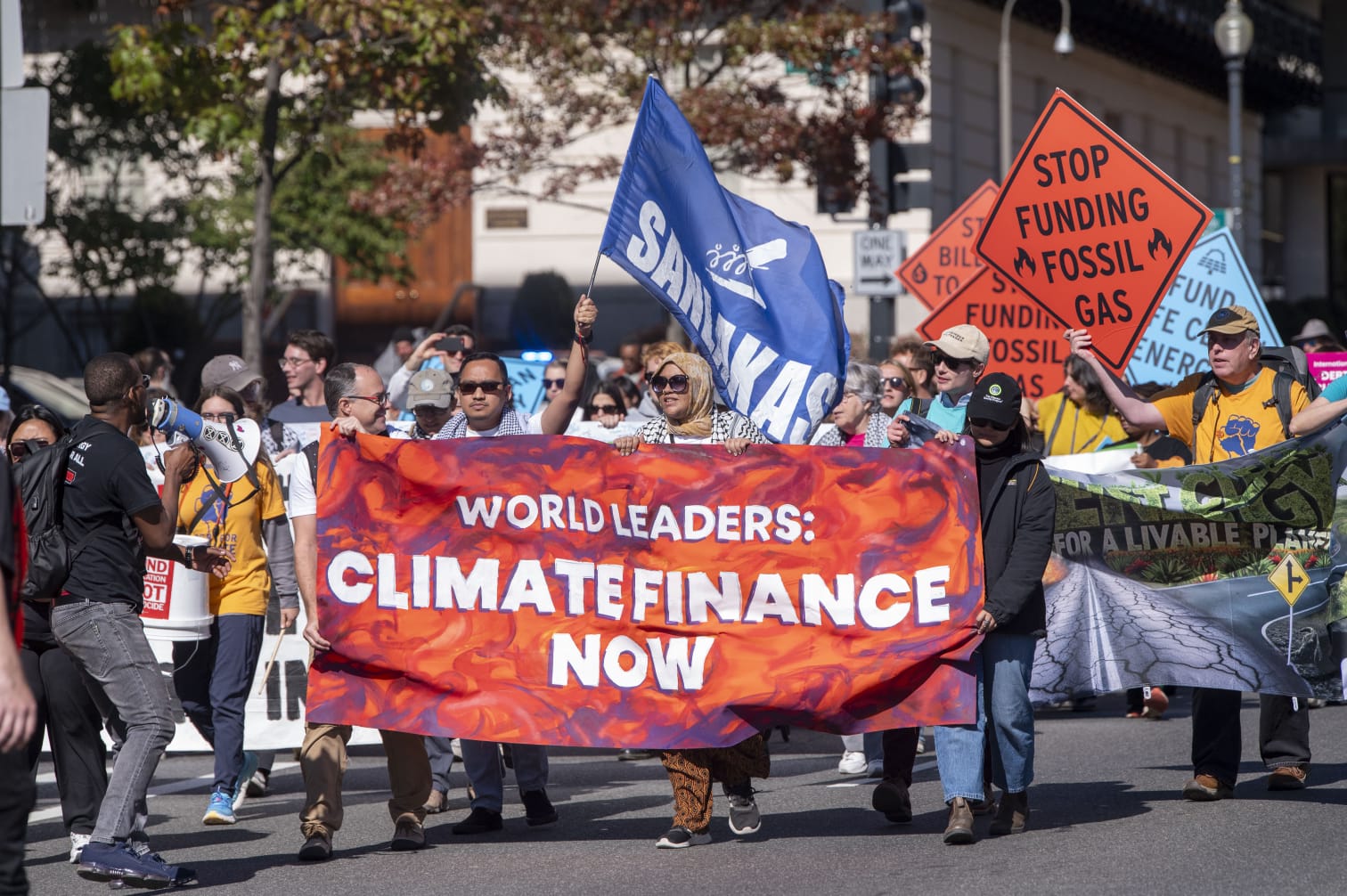A Call for Justice, Equity, and Systemic Change

As COP29 unfolds in Baku, civil society, particularly feminist and Global South advocates, are expressing deep concerns about the lack of ambition and justice in the current climate finance negotiations. The New Collective Quantified Goal (NCQG) on Climate Finance is meant to succeed the unfulfilled $100 billion target set in 2009, while Global South countries need at least $1.3 trillion per year in climate finance to be able to respond to the climate crisis.
However, instead of moving forward, the proposals on the table–$300 billion by 2035 in unfair, low-quality market-based finance–represent a significant step backward, leaving vulnerable nations without the resources they need to confront the climate crisis effectively . simply the main polluters Don’t want to Pay for thire responsibility which is climate debt and want to push for another colonial approach under the name of climate finance.
Once again the trust is broken and the Global economic system is falling the global south.
Climate Debt: A Justice Issue
It is imperative that the NCQG process acknowledges the undeniable climate debt owed by the Global North to the Global South. Historically, the largest polluters have reaped the benefits of industrialization while disproportionately shifting the burden of climate impacts to developing nations. Climate finance is not charity—it is justice, an ethical and legal responsibility to repay this debt through public finance mechanisms.
Instead of meeting this responsibility, rich countries continue to push for loans over grants, exacerbating the debt burdens of nations already grappling with the compounded challenges of climate impacts, economic inequality, and resource exploitation. Feminists and civil society leaders demand that climate finance be provided as public grants, scaled to the trillions of dollars necessary to address adaptation, loss and damage, and just energy transitions in the Global South.
A Dangerous One-Size-Fits-All Approach
The COP29 Presidency’s decision to bundle climate goal negotiations with discussions of a just transition undermines progress. This approach ignores the unique needs of developing countries and risks entrenching inequality. The current NCQG draft text is unambitious and regressive, prioritizing the interests of historic polluters over vulnerable communities.
The proposed NCQG fails in several critical areas:
- Insufficient Funding: The proposed financial commitments fall drastically short of the estimated $1.3 trillion needed annually by developing nations.
- Debt-Based Instruments: By prioritizing loans, the NCQG increases the financial strain on already debt-ridden nations.
- Weak Targets: The absence of clear commitments for adaptation, loss and damage, and equitable transitions undermines the Paris Agreement’s goals.
- Ignoring Gender Justice: The NCQG text fails to address the specific vulnerabilities of women and marginalized groups, perpetuating systemic inequities.
Feminist Call for Systemic Change
Feminists at COP29 are calling for a transformative approach that prioritizes systemic change over piecemeal solutions. A just transition must center equity, human rights, and tangible financial commitments to scale renewable energy, protect workers, and build resilient communities.
We cannot ignore the gendered impacts of the climate crisis. Women, particularly in the Global South, are disproportionately affected by climate change, yet their voices are often sidelined in policy decisions. The NCQG must explicitly include gender-responsive mechanisms that address these inequities and empower women as agents of change.
The Risk of Locking the Global South into Fossil Fuels
The lack of adequate and predictable financing is locking our countries and other developing regions into a fossil fuel dependency trap. Fossil fuel investments are a trap that the north is pushing our countries into, in this critical time, to pay their debt. The NCQG’s failure to deliver debt-free financing undermines our countries’ just transition. This not only exacerbates energy poverty and inequities but also stalls the developing countries’ efforts to increase renewable energy use and reduce reliance on fossil fuels.
The Way Forward: No Deal is Better Than a Bad Deal
Developing countries and civil society groups are increasingly vocal about their refusal to accept a bad deal. If the current NCQG proposal remains unambitious and unjust, walking away becomes a preferable option. The Global South cannot afford to be locked into a framework that perpetuates inequality, fails to address historical responsibilities, and offers insufficient support for climate resilience.
Demands for COP29 and Beyond
Feminists and civil society demand:
- Grants, Not Loans: Climate finance must come in the form of public grants, not loans that exacerbate debt crises.
- Clear Targets: The NCQG must include concrete, ambitious financial targets for adaptation, loss and damage, and just transition.
- Gender Justice: Commitments must address the specific needs of women and marginalized groups, ensuring their voices are at the center of climate solutions.
- Equity and Reparations: Rich countries must meet their climate debt obligations and ensure predictable, long-term financing that reflects their historical responsibility.
- Exclusion of Multilateral Development Banks (MDBs): Climate finance should bypass MDBs to avoid financialization and privatization of climate solutions.
A Call for Solidarity
The climate crisis is not just an environmental issue; it is a justice issue that demands systemic change. Feminists and civil society leaders at COP29 are united in their call for equity, dignity, and meaningful action. If COP29 fails to deliver, the fight for a fair and just NCQG will continue, ensuring that future generations are not left to bear the costs of today’s inaction.
Climate finance is not a favor—it’s justice. It’s time for the Global North to pay up!


